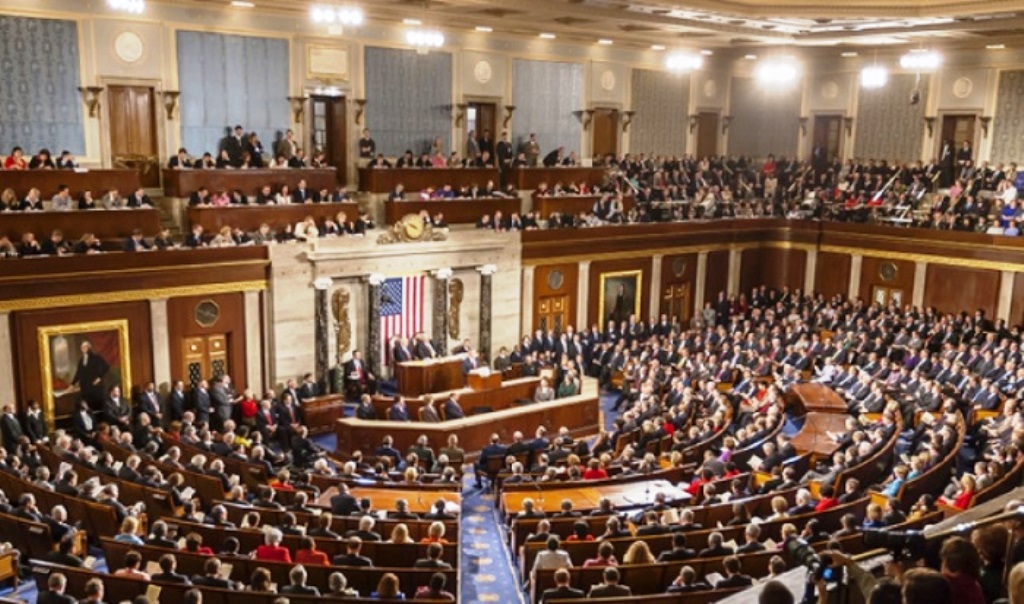Η επιβολή των κυρώσεων τις οποίες αποφάσισε το Αμερικανικό Κογκρέσσο να επιβάλει στην Τουρκία δημιούργησαν ικανοποίηση στην Ελλάδα κι έδωσαν πολλές ελπίδες για την «επόμενη μέρα» στις διμερείς σχέσεις μας με την εκλογή του Αμερικανού Προέδρου, Τζο Μπάιντεν.
ΓΡΑΦΕΙ Η ΠΕΓΚΥ ΝΤΟΚΟΥ
Θυμίζουμε ότι (σύμφωνα με την naftemporiki) οι ΗΠΑ στις 14 Δεκεμβρίου 2020 ανακοίνωσαν διά στόματος του απερχόμενου υπουργού Εξωτερικών Μάικ Πομπέο την επιβολή κυρώσεων ενάντια στη Διεύθυνση Αμυντικής Βιομηχανίας της Τουρκικής Δημοκρατίας (SSB), σύμφωνα με το Άρθρο 231 του Νόμου CAATSA (Νόμος για την Αντιμετώπιση των Αντιπάλων της Αμερικής Μέσω Κυρώσεων) για τη συνειδητή εμπλοκή σε μια σημαντική συναλλαγή με τη Rosoboronexport, την κύρια εταιρεία εξαγωγής όπλων της Ρωσίας, που προμήθευσε το σύστημα πυραύλων εδάφους-αέρος S-400.
Οι κυρώσεις περιλαμβάνουν απαγόρευση όλων των αμερικανικών αδειών εξαγωγής και εξουσιοδοτήσεων στην SSB και πάγωμα περιουσιακών στοιχείων και περιορισμούς ταξιδιωτικών θεωρήσεων στον Ισμαήλ Ντεμίρ, πρόεδρο της SSB και άλλα στελέχη της SSB.
Σήμερα, παραθέτουμε ΑΠΟΚΛΕΙΣΤΙΚΑ το κείμενο της απόφασης όπως ακριβώς εισήχθη και ψηφίστηκε από το Αμερικανικό Κογκρέσσο όπου αναφέρονται χαρακτηριστικά –μεταξύ άλλων- ότι η απόφαση της Τουρκίας να αγοράσει τους S-400 από την Ρωσική Ομοσπονδία, παραβιάζει, κατά το Σύνταγμα των ΗΠΑ την μεταξύ τους συμφωνία καθώς η Ρωσία θεωρείται από τους Αμερικανούς, ένας ‘εχθρός’ με κακόβουλες προθέσεις.
Έχει σημασία να διαβαστεί το κείμενο με πολλή προσοχή και να υπογραμμίσουμε εδώ, πως η Αμερική θεωρεί ότι:
«Η Τουρκία παραμένει ένας κρίσιμος σύμμαχος του ΝΑΤΟ και σημαντικός στρατιωτικός εταίρος για τις Ηνωμένες Πολιτείες, συμβάλλοντας σε βασικές αποστολές του ΝΑΤΟ και των Ηνωμένων Πολιτειών και παρέχοντας υποστήριξη για στρατιωτικές επιχειρήσεις και ανάγκες ανεφοδιασμού των Ηνωμένων Πολιτειών…»
ΟΛΟΚΛΗΡΗ Η ΑΠΟΦΑΣΗ ΣΤΑ ΑΓΓΛΙΚΑ
December 2, 2020
Matters Relating to Europe and NATO
DETERMINATION AND IMPOSITION OF SANCTIONS WITH RESPECT TO TURKEY’S ACQUISI5 TION OF THE S–400 AIR DEFENSE SYSTEM.
SENSE OF CONGRESS.—It is the sense of Congress that it is in the national security interest of the United States to deter aggression against North Atlantic Treaty Organization (NATO) allies by the Russian Federation or any other adversary;
(2) to continue to work with NATO allies to ensure they meet their alliance defense commitments, including through adequate and efficient investments in national defense;
(3) to work to maintain and strengthen the democratic institutions and practices of all NATO allies, in accordance with the goals of Article 2 of the North Atlantic Treaty;
(4) to ensure that Turkey remains a critical NATO ally and important military partner for the United States, contributing to key NATO and United States missions and providing support for United States military operations and logistics needs;
(5) to assist NATO allies in acquiring and deploying modern, NATO-interoperable military equipment and reducing their dependence on Russian or former Soviet-era defense articles;
(6) to promote opportunities to strengthen the capacity of NATO member states to counter Russian malign influence; and
(7) to enforce fully the Countering America’s Adversaries Through Sanctions Act (22 U.S.C. 9401 10 et seq.), including by imposing sanctions with respect to any person that the President determines knowingly engages in a significant transaction with a person that is part of, or operates for or on behalf of, the defense or intelligence sectors of the Government of the Russian Federation, as described in section 231 of that Act (22 U.S.C. 9525).
(b) DETERMINATION.—The acquisition by the Government of Turkey of the S–400 air defense system from the Russian Federation beginning on July 12, 2019, constitutes a significant transaction as described in section 231 of the Countering America’s Adversaries Through Sanctions Act (22 U.S.C. 9525).
(c) IMPOSITION OF SANCTIONS.—Not later than 30 days after the date of the enactment of this Act, the President shall impose five or more of the sanctions described in section 235 of the Countering America’s Adversaries Through Sanctions Act (22 U.S.C. 9529) with respect to each person that knowingly engaged in the acquisition of the S-400 air defense system referred to in subsection (b).
(d) EXCEPTION RELATING TO IMPORTATION OF GOODS.
(1) IN GENERAL. Notwithstanding any other provision of this section, the authorities and requirements to impose sanctions under this section shall not include the authority or a requirement to impose sanctions on the importation of goods.
(2) GOOD DEFINED. In this subsection, the term ‘‘good’’ means any article, natural or manmade substance, material, supply or manufactured product, including inspection and test equipment, and excluding technical data.
(e) TERMINATION. On and after the date that is one year after the date on which the President imposes sanctions under subsection
(c) with respect to a person, the President may terminate the application of such sanctions with respect to that person if the President submits to the appropriate congressional committees a certification that
(1) the Government of Turkey and any person acting on its behalf no longer possesses the S–400 air defense system or a successor system;
(2) no S-400 air defense system or successor system is operated or maintained inside Turkey by nationals of the Russian Federation or persons acting on behalf of the Government of the Russian Federation or the defense sector of the Russian Federation; and
(3) the President has received reliable assurances from the Government of Turkey that the Government of Turkey will not knowingly engage, or allow any foreign person to engage on its behalf, in pursuing any activity subject to sanctions under section 231 of the Countering America’s Adversaries Through Sanctions Act (22 U.S.C. 9525) to reacquire the S-400 air defense system or a successor system.
(f) APPROPRIATE CONGRESSIONAL COMMITTEES DE20 FINED. In this section, the term ‘‘appropriate congressional committees’’ means
(1) the Committee on Foreign Relations and the Committee on Armed Services of the Senate; and
(2) the Committee on Foreign Affairs and the Committee on Armed Services of the House of Representatives.

